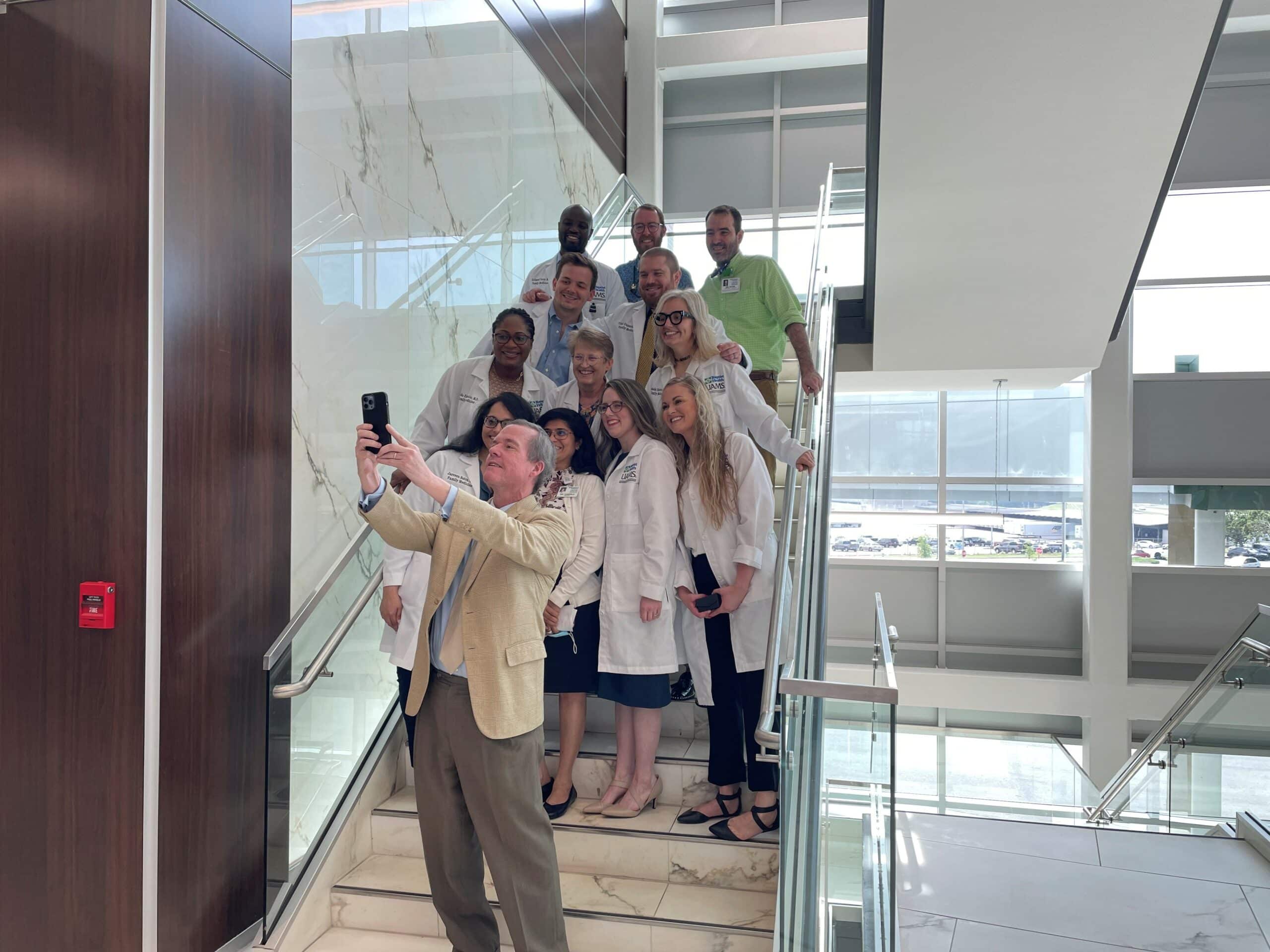Baptist Health-UAMS Medical Education Program Celebrates First Round of Graduates
| The Baptist Health-University of Arkansas for Medical Sciences (UAMS) Medical Education Program on June 17 celebrated its first graduating classes of 24 residents in Family and Internal Medicine at the Baptist Health Medical Center-North Little Rock campus.
The growing need for health care in Arkansas and the shortage of primary care physicians are reasons why Baptist Health and UAMS partnered together to create the residency program. The goal is to train residents in the full scope of family medicine and internal medicine to increase medical care access to rural and underserved communities in the state. The program began in July 2019 and has since received accreditation.
“One way to fix the physician shortage is to train more physicians,” said president and CEO of Baptist Health Troy Wells in his opening remarks. “By working together, Baptist Health and UAMS can dramatically impact the number of residency spots available in our state.”
“[The] residents graduating today are living proof of our commitment to working together to increase the number of physicians for the state of Arkansas. Data shows us that physicians are more likely to practice within 50 miles of their residency training,” said Cam Patterson, M.D., MBA, UAMS chancellor and CEO of UAMS Health. “We want to train and retain the physicians who study here so they can provide for us, our family and our friends.”
Graduating resident, Jahanzeb Khan, M.D., spoke to his fellow graduating class at the ceremony. He acknowledged how Arkansas lacks enough providers and shared how he wants to help meet the health care needs of his fellow Arkansans. He will be staying in Little Rock to complete a fellowship at UAMS in nephrology. Fellow graduate, Ali Mitchell, D.O., also spoke about her experiences as a Family Medicine resident in the program.
Once the program is fully running, it will graduate collectively 40 residents a year from four residency programs: Internal Medicine, Family Medicine, transitional year and Psychiatry.
“Ultimately we’ll expand up to a hundred or more new residency positions in our state,” Wells said.

